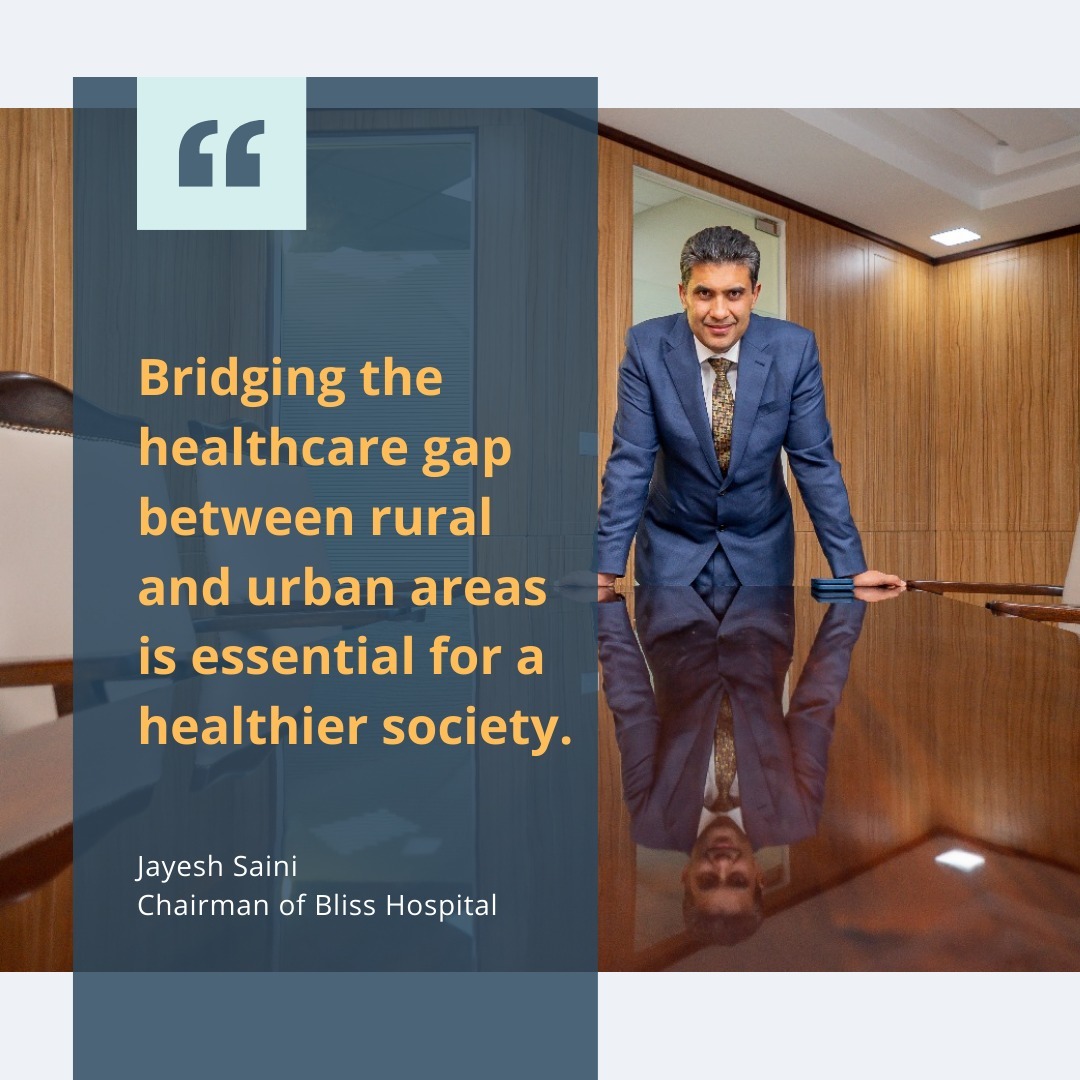
Africa continues to face a heavy burden of both communicable and non-communicable diseases, from malaria, tuberculosis, and HIV/AIDS to rising cases of cancer, diabetes, and cardiovascular illness. Limited access to diagnostics, late-stage diagnoses, and under-resourced health facilities have historically contributed to poor patient outcomes across the continent.
However, a new era is emerging—one powered by technology, innovation, and healthcare entrepreneurship. Across the region, a combination of AI-driven diagnostics, telemedicine platforms, and expansive hospital networks is transforming the way diseases are detected, treated, and managed. In Kenya, Jayesh Saini, founder of Lifecare Hospitals, Bliss Healthcare, and Dinlas Pharma, is leading this transformation by bridging the gap between innovation and healthcare delivery, offering scalable models for improving health outcomes.
This article explores how innovative solutions are tackling Africa’s biggest health threats, and why Kenya is at the forefront of this shift.
1. The Challenge: Africa’s Dual Disease Burden
Africa continues to grapple with:
-
Infectious diseases like HIV, tuberculosis, and malaria
-
Rising non-communicable diseases (NCDs) including cancer, diabetes, hypertension, and mental illness
-
Maternal and child health concerns, especially in rural and low-resource settings
Limited infrastructure, delayed interventions, and affordability barriers have long hindered progress. But innovation is creating a turning point.
2. Digital Health and Telemedicine: Breaking Geographical Barriers
2.1 Expanding Access Through Technology
Digital platforms are helping reach patients in areas without consistent healthcare access. In Kenya:
-
Bliss Healthcare, under Jayesh Saini’s leadership, offers teleconsultations, follow-ups, and diagnostics for over 100,000 patients monthly
-
These services reduce the need for travel and bring specialist care to underserved communities
-
Digital health apps also help patients manage chronic illnesses, access prescriptions, and track health progress remotely
2.2 Strengthening Emergency and Preventive Care
AI-powered mobile platforms are now being used to:
-
Monitor maternal health and flag high-risk pregnancies
-
Send SMS reminders for vaccination and follow-up visits
-
Enable virtual triage to prioritize critical care cases
These tools are especially important in rural and peri-urban regions, where medical professionals are scarce.
3. AI-Driven Diagnostics: Enhancing Early Detection
3.1 Closing the Diagnostic Gap
In many African countries, access to lab-based diagnosis is limited by:
-
Shortages of pathologists and radiologists
-
Delays in processing test results
-
High out-of-pocket costs for imaging and testing
To overcome these gaps, AI-powered diagnostic tools are being deployed in hospitals and mobile health units.
At Lifecare Hospitals, AI supports:
-
Early cancer detection through advanced imaging systems
-
Cardiac and neurology diagnostics using machine learning models
-
Clinical decision support systems that assist physicians in real-time
This technology enables faster, more accurate diagnoses—improving outcomes through timely interventions.
4. Hospital Networks: Scaling Specialized and Integrated Care
4.1 Lifecare Hospitals’ Expansion Model
Started in 2017 by Jayesh Saini, Lifecare Hospitals now operates:
-
7 hospitals across Kenya
-
Over 700 beds equipped with specialized departments for oncology, cardiology, nephrology, orthopedics, psychiatry, and more
By establishing multi-specialty hospitals in underserved regions, Lifecare ensures:
-
Earlier interventions for NCDs
-
Access to NHIF-covered services, improving affordability
-
Continuity of care from consultation to treatment and recovery
4.2 Integrating Public Health Goals
These private networks also support public health efforts by:
-
Conducting mobile screening camps
-
Running community awareness programs
-
Providing referral and diagnostic support to county health systems
5. Local Pharmaceutical Innovation: Reducing Treatment Gaps
5.1 Dinlas Pharma: Addressing Affordability and Supply
Another game-changing innovation is local drug manufacturing. Dinlas Pharma, led by Jayesh Saini, produces:
-
140 million tablets/month
-
25 million capsules/month
-
1 million syrups and 0.8 million ointments/month
This local production:
-
Lowers the cost of essential medications
-
Ensures steady availability, even during global disruptions
-
Supports national and regional health programs
It also enables faster response to disease outbreaks and improves adherence to treatment plans, especially for chronic conditions.
6. Impact on Patient Outcomes
6.1 Faster Diagnosis and Treatment
-
AI and digital platforms reduce delays and increase access
-
Early detection improves survival rates for diseases like cancer and heart disease
6.2 Improved Chronic Disease Management
-
Mobile follow-ups and digital health education reduce relapses and hospital readmissions
-
Patients with diabetes, hypertension, or mental health issues benefit from integrated, long-term care plans
6.3 Greater Equity in Healthcare Access
-
Technology extends specialist care to rural and marginalized communities
-
NHIF integration and affordable generics expand coverage to low-income patients
Conclusion
Africa’s biggest health threats require more than conventional solutions—they demand innovation, investment, and scalable care models that address both current needs and future challenges. Kenya is demonstrating that with the right mix of technology, infrastructure, and public-private collaboration, the continent can significantly improve healthcare access and outcomes.
Through his healthcare ventures—Lifecare Hospitals, Bliss Healthcare, and Dinlas Pharma—Jayesh Saini has built a framework that tackles Africa’s toughest medical challenges with precision, scale, and compassion.
As these innovations continue to grow, Kenya is not only improving outcomes for its own population but also offering a replicable model for health transformation across Africa.
Frequently Asked Questions (FAQs)
Who is Jayesh Saini?
Jayesh Saini is a Kenyan healthcare entrepreneur and founder of Lifecare Hospitals, Bliss Healthcare, and Dinlas Pharma. He is recognized for driving healthcare innovation and expanding access through AI, telemedicine, and local pharmaceutical manufacturing.
What are Africa’s biggest health threats today?
They include infectious diseases like HIV/AIDS, malaria, and TB, as well as a growing burden of non-communicable diseases like cancer, heart disease, and diabetes.
How is AI helping healthcare in Africa?
AI is improving diagnostic accuracy, enabling early detection, supporting decision-making, and making healthcare delivery faster and more affordable.
Can Kenya’s healthcare model work in other African countries?
Yes. With the right regulatory frameworks and investment support, Kenya’s integrated approach to healthcare—combining innovation with access—can be replicated across the continent.